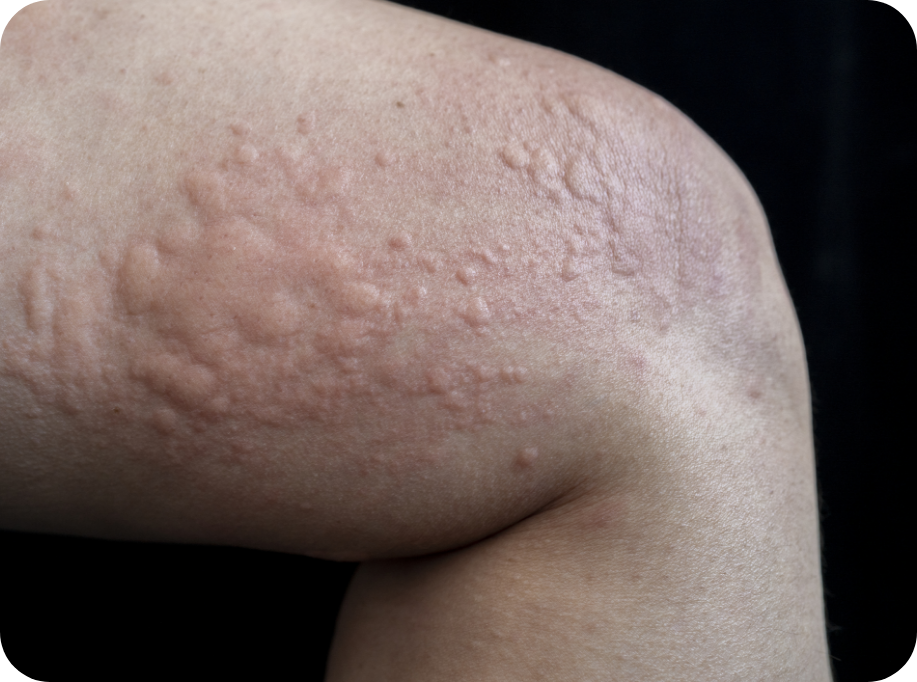
Hives Treatment
Our medical professionals are experienced in diagnosing hives and creating personalized treatment plans to help you experience relief.
What Are Symptoms of Hives?
Hives are characterized by the sudden appearance of itchy, raised welts on the skin. These welts can vary in size, shape, and location on the body and are typically accompanied by several key symptoms:
Red or Pink Bumps
Development of raised, red or pink bumps on the skin that are often round or oval shaped and can range from small to several inches in diameter
Blanching
When you press the center of a hive, it tends to blanch or turn white, distinguishing it from other skin rashes
Clustered Appearance
Cluster together, forming larger welts or patches on the skin, merging and covering more extensive areas
Itching
Itching is a hallmark symptom of hives and can be mild to severe and cause significant discomfort
Transient Nature
Typically appear suddenly, and individual welts tend to come and go within hours, often relocating to different areas of the body
Angioedema
Hives may be accompanied by angioedema, which is a deeper swelling beneath the skin’s surface and cause a sense of tightness or tingling on the eyelids, lips, tongue, hands, and feet
Diagnosing & Treating Hives
Medical History
If you experience hives, we will take a comprehensive medical history to identify the underlying cause to direct the evaluation and testing.

Diagnostic Testing
If there is a suspicion of an allergic trigger, then allergy skin testing will be performed once the hives are resolved.
If the hives are lingering and there is still a suspicion for an underlying allergic trigger, then a laboratory test called ImmunoCAP testing will be ordered to evaluate for an underlying allergy.

Treatment
Treatment of hives includes eliminating or treating any underlying cause. For patients who have persistent hives and itchiness despite avoidance of the underlying trigger (if detected), then there are several different medications which can be used.
Hives Testing
How to Treat Hives
Hives FAQs
The majority of cases of hives are unexplained. Allergies should be considered a cause, with paying specific attention to foods, medications and skin products. However, if there are no obvious triggers then other causes such as infections and autoimmune inflammatory reactions need to be considered.
Not necessarily. Hives can definitely be a sign of an allergic reaction, but they can also be a sign of something else, such as an infection or autoimmune condition.





